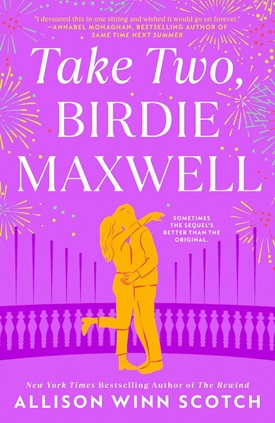 Synopsis:
Synopsis:
Birdie Robinson thought she’d gotten everything she wanted out of life: fame, adoration, and an A-list Hollywood career as America’s sweetheart. Everybody loves Birdie until an on-set feud goes viral. She runs away from Los Angeles to her hometown of Barton, “a speck” three hours north of Los Angeles in California’s vast Central Valley, the one place where no one would think to find her, especially since she lied to an interviewer years ago, claiming to be from Oregon.
Back in her parents’ home for the first time in several years, she’s startled to stumble upon a love letter from a former boyfriend asking for a second chance. The typewritten letter is unsigned . . . and she’s not sure which of her ex-boyfriends sent it.
But she believes a public reunion with an ex-boyfriend could turn the wave of public opinion back in her favor. Life imitating art with the kind of happy ending featured in her films.
What could go wrong?
Reporter Elliot O’Brien knows that life isn’t actually a romantic comedy. Case in point, he’s spent two decades repressing his long-simmering feelings for his twin sister’s best friend, none other than Birdie. His journalism career is cratering, and Birdie is back in their hometown at the same time he is. Chronicling her search for her long-ago ex-boyfriend may be his opportunity to right some wrongs and get his career back on-track.
As Birdie and Elliot hit the road in an ancient RV, they retrace her romantic history in their search for clues as to who wrote the letter. They also come face-to-face with their own romantic missteps, all while grappling with the question of whether happy endings are found only on the big screen . . . or if their own happier-ever-after could be closer than either of them ever imagined.
Review:
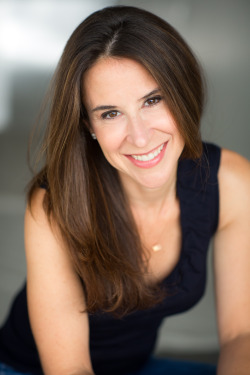
Allison Winn Scotch is the New York Times bestselling author of eight previous novels, including The Song Remains the Same, Time of My Life, In Twenty Years, Between Me and You, Cleo MacDougall Regrets Nothing, and The Rewind.
Scotch can always be counted on to deliver an entertaining story. Her books often appear, at first blush, to be light, breezy romances with happy endings and clever, innovative premises that elevate them within a saturated genre. But as her stories progress, it quickly becomes evident that she is intent on exploring much more than simply how a couple meet, fall in love, perhaps lose each other, and then find their way back together. And Take Two, Birdie Maxwell is not an exception.
Readers might be surprised to learn that Scotch found Take Two, Birdie Maxwell difficult to write. In fact, she says she “burned down my first four drafts, deleting them nearly entirely.” There is no evidence of her struggles in the fast-paced, crisp narrative that flows with seemingly no effort at all. The story was inspired by a real-life event. Like Birdie, her lead character, Scotch received an anonymous love letter in the mail years ago when she was at home from college during the summer. She did not attempt to discern the identity of the writer – she found it “more alarming than romantic.” But that experience was the impetus for a story that once again begins with an unusual premise and, with the addition of inventive plot twists and a cast of quirky, empathetic characters, becomes a touching meditation on the importance of communication in relationships, learning to be brave, loyalty to family, and daring to craft a life on one’s own terms that brings genuine happiness.
Birdie Maxwell is now known as Birdie Robinson and she is the beloved queen of the United States box office. Having starred in a string of successful romantic comedy films, she is known as “America’s Sweetheart.” Until, that is, she blows up on the set of her latest movie and the details are leaked to TMZ. The reason for her emotional implosion? The mistreatment of women by her co-star, Sebastian Carol. Sebastian is known for being “handsy,” leering, and luring actresses to his trailer with promises of movie roles and associated perks. Birdie felt “she was defending the honor of women everywhere.” But so far, the public is on Sebastian’s side, and not even the “apology video” she reluctantly released at the insistence of her agent and publicist has helped stop the freefall into which her career has careened, once again demonstrating the ongoing disparate treatment and perceptions of men and women by both the media and the public. Birdie was aware, when the studio insisted on casting Sebatian, of his proclivities, in part, because she was enmeshed in a clandestine relationship with his brother, Miles, for five years. But she couldn’t tolerate it for one more moment, spoke her mind, and now the studio has ceased production on the film.
In an effort to escape the paparazzi and stress, she has escaped to her hometown of Barton, “a speck in the middle of California,” for the first time in four years. No one will look for her there, in part because she has claimed for years to be from Oregon. She didn’t bother to warn her parents (professors at a nearby state university); younger sister, Andie; or Mona, her best friend, the proprietor of a local dive bar who set out to be an astrophysicist, but dropped out of college and returned home when her parents needed her. She ended up staying, but her twin brother, Elliot, has traveled the world as a highly respected and well-known journalist and correspondent. Birdie has been in love with Elliot since his family moved to Barton when Birdie was twelve years old. Seven years ago, Birdie believed her chance to have a romantic relationship with Elliot had finally arrived. But she was disappointedly, devastatingly wrong and they haven’t seen each other since that one horrible, heartbreaking night they spent together. Elliot “emotionally decimated her” and she blames herself for allowing herself to think that she would mean more to him than she evidently did. Elliot has always been a handsome and charming womanizer.
Birdie’s relationship with Andie has been troubled, but she is not prepared to have Andie slam the door in her face. Had she read her emails, she would have known that her parents have embarked on a year-long sabbatical in Spain and Andie is packing up their belongings in preparation to sublet the house. Her requests for assistance from Birdie went unanswered, so she has boxed up Bridie’s remaining belongings. “Anything you want, I suggest you salvage it now.”
So, Birdie begins sorting through boxes of memorabilia, one of which contains a letter startlingly addressed to “Birdie Maxwell Robinson.” Only a few people in the world would address such a letter to her in Barton — and Birdie can’t remember whether she confessed the truth about her upbringing to any of her old boyfriends. The postmark is faded and only partially legible. Type-written, bearing no return address, and signed “X,” the letter must be several years old. It says, in part:
I regret everything.
All of it.
And I would have done it all differently.
. . .
If you have the same regrets, the same what-ifs about where we went wrong when everything could have gone right, come find me. Consider it?
Consider me again.
Letter in hand, Birdie proceeds to Mona’s bar to ponder the identity of potential letter-writers with her best friend. She is already determined to learn who sent it, plotting how documenting and publicizing the search can revive her career. “I’m thinking maybe that will help remind people that I’m likable, that I’m just a girl, standing in front of a boy, asking him to love her.” The suspects include Elliot, of course, as well as a world-renowned chef, a tennis pro, and mabye even Miles. Before she and Mona can finalize plans for the search, Elliot himself strolls into the bar. No one knows that his career is in trouble after an unfortunate ethical breach – he paid for information he needed to break a major story, although ultimately getting the facts right.
Mona enthusiastically suggests that Elliot write the story of Birdie’s search for the author of the letter. And Birdie and Elliot set off in Mona’s dilapidated Winnebago to track down and meet with her old flames, intent on remaining incognito as Birdie confronts her former lovers to see which of them regrets the demise of their relationship. Of course, nothing goes according to plan and as they travel together, they find themselves simultaneously getting reacquainted and revisiting their pasts, especially their mistakes and regrets. As the story proceeds, Scotch gradually reveals their history – how Birdie and Mona became best friends; Elliot’s high school years as the school’s star athlete, and most popular and desired boy on campus; how they ended up attending the prom together; and all that transpired seven years ago, culminating with their fiery and, so far at least, irrevocable breakup. Along the way, Birdie fights with her agent and publicist, as well as Elliot, and contemplates how events in her life led her to her current ridiculous professional and personal predicaments. Elliot is still harboring secrets that, if revealed, could again destroy his rekindled relationship with Birdie. He is also fighting to save his career. His editor has authorized him to write Birdie’s story, but only with strict ethical constraints that he finds himself straddling as he learns a great deal about Birdie’s past relationships, gains a deeper understanding of her, and contemplates how he will react if they find the author of the letter. . . and Birdie reconciles with him.
Scotch deftly keeps readers invested in their efforts to solve the mystery. In addition to providing snippets of her characters’ pasts that provide insight into how their current troubles developed, her characters that are at once lovable and sympathetic, and completely exasperating. They are flawed, their lives messy, and they are very relatable in a number of ways. Birdie is a small young woman from a small town with a big talent that she managed to parlay into a wildly successful career. She has always approached life as though it were a movie or play – she “always found difficult moments easier to digest if she simply pretended she was acting out a scene; this meant she could be vulnerable on the surface but not so vulnerable that she risked emotional decimation.” But now she is forced to confront reality – her usual defense mechanisms will not serve her in her current circumstances, and she has to develop a more honest, transparent, and straight-forward way to cope. Secrecy has made her personal life chaotic, and she is tired of it. But is she ready to risk revealing the truth and face the potential fallout? Underneath her love of the spotlight, bravado, and quick wit, she has always been and still is insecure, searching for validation, frightened, and very vulnerable. Especially where Elliot is concerned. Elliot is well aware of his public persona – talented, attractive, confident, and desirable. But, like Birdie, secrets have brought him to a crossroads in his life, and he has to decide if he has the strength and courage to speak his truth and clear the air. He recognizes that there is no other way to move forward toward what he has really wanted all along. Mona also figures prominently in the story. Both Birdie and Elliot love her dearly, and would never do anything to hurt her. She has been a loyal, steadfast, and unwavering supporter to both of them . . . and they are about to find out how deeply their best friend and sister cares about their happiness.
Scotch again demonstrates that she is a master at creating characters who engage in sharp, at times sarcastic, and frequently hilarious banter. Her characters’ verbal jousting injects the perfect balance of humor and emotional resonance into the crackling story as they find themselves in increasingly ridiculous situations, even as their deeply buried emotions are surfacing.
With Take Two, Birdie Maxwell, Scorch has again crafted a delightful tale that is a combination of I Love Lucy-esque comedy and a journey for her characters of reflection, self-examination, and personal growth. If they can learn to communicate with each other freely and fearlessly, they stand a chance of saving their careers, creating a meaningful future for themselves individually and, perhaps, remaining in each other’s lives this time. And yes, Scotch eventually reveals who wrote and mailed the letter, and why, in a plot twist many readers will never anticipate.
Excerpt from Take Two, Birdie Maxwell
1
Birdie
Birdie Robinson arrived on her childhood street much like she had left: unceremoniously, with little fanfare, and certainly with no red carpet. She dropped her leather duffel, stuffed only with clothes designed for a wellness retreat (she had in fact packed for a wellness retreat), and spun toward the stop sign on the corner. But her driver and his Escalade were long out of view, and she suspected sending him away was the first of many regrets she’d have about coming home. She dipped her head back and stared up toward the cloud-covered night sky. The air smelled just as she remembered her hometown’s night air smelling: like threatening snow, like chopped firewood, but also like the neighbors had left out rotting garbage. Barton was complicated in that way, and certainly, it was complicated for Birdie.
She squeezed her eyes shut and groaned aloud. She hadn’t meant to end up here, both in this moment and, well, ever again. She had fled New York earlier that morning, having booked a last-minute trip to the private, exclusive spa outside Los Angeles, the privacy being the most critical criterion for her choice. But as she ran from the paparazzi who greeted her at LAX and threw herself into the waiting car, she found herself directing the driver here. To Barton. A speck in the middle of California. She hadn’t been home in four years, hadn’t thought to call her father and stepmother, hadn’t thought to text her younger sister, Andie, or DM her best friend, Mona, whose house Birdie could see from her spot on the sidewalk if she were to open her eyes.
So now she was moored to the sidewalk in front of her parents’ bilevel home as the temperature dipped into the thirties, dressed in a caftan meant for a day spa, and talking herself into ringing the doorbell.
She heard her phone vibrate in her bag. Sydney, her agent, or Imani, her publicist. She should tell them she bolted, that she would miss their lunch tomorrow at the spa to “remaneuver” their next steps. That was Imani’s word. “Well, the apology video didn’t go exactly as planned, so let’s meet up and discuss a remaneuver.” Birdie was relieved Imani had found a new word for it. She’d heard her publicist say pivot at least several hundred times in the past few weeks, and it was all Birdie could do to stop herself from proposing a drinking game. Every time Imani says pivot, we take a shot.
Needless to say, she’d be hospitalized for alcohol poisoning.
Birdie was tired of the news alerts on her phone blaring about the downfall of America’s Sweetheart. She was tired of being a piñata for gossip sites, tired of getting dragged over hot coals because she couldn’t take Sebastian Carol’s on-set bad behavior for even one more second, which was the only reason she threw a fit in the first place. Sebastian Carol, of the famed Carol brothers duo, spawn of the famous director Milo Carol, was known to be handsy. He was known to leer at breasts and to entice actresses back to his trailer, all under the guise of bolstered parts, better lighting, future roles in blockbusters. Birdie knew this when she signed on. She also knew that Sebastian was complicated for her for plenty of other reasons: namely, the long-secret and very doomed relationship she’d had for five years with his brother. But the studio insisted on Sebastian for the sequel to Birdie’s biggest box office hit. Frankly, the industry’s biggest rom-com box office hit of the decade. The only thing that trumped Birdie’s star power was the Carol brothers’ star power, so she said yes. And then, when she watched him massaging one more day player’s shoulders, she lost it.
How was she to know that someone was filming? How was she to know that while she was defending the honor of women everywhere, the public would choose to side with Sebastian? (This she really should have known.) How was she to know that the day player might give an interview to TMZ saying it was a perfectly innocuous massage? Or that Sebastian would threaten to quit if Birdie wasn’t fired. Since Love Grenade couldn’t work without Birdie or without Sebastian (according to the studio), they shuttered the film entirely. Rumors grew into legend and legends became truths, and soon, so, so quickly, Birdie Robinson, star extraordinaire, was hurtling toward her downfall. A dickhead director and a misogynistic media and a publicist who couldn’t stop saying pivot: a toxic unexpected combination that led Birdie to the rash decision to flee to Barton after so many years away.
Birdie steeled herself again to ring the doorbell. She could probably swipe the key that was always under the doormat, because Barton was not the type of place where you worried about your neighbors stealing keys and then stealing your television, but she didn’t want to startle her parents. Walking in unannounced after four years. Her father and Susana were professors at the state university about twenty miles south. Two brainy peas in a pod, Susana used to say, and Birdie, too young to understand that she didn’t mean this literally, always envisioned them as green and round and pressing up against each other, which at the time she found disgusting. Birdie didn’t want to stride in the door after so much time away and find them naked, which had happened when she was thirteen after she told them she was sleeping over at Mona and Elliot’s — Mona’s twin brother-three houses down, but forgot her toothbrush and returned home to retrieve it.
So the doorbell it was.
She bounced her head and talked herself up the stoop. Birdie the actor could talk herself into anything, become just about anyone. It was the only thing she was truly excellent at in life: assuming a role and inhabiting it until the director yelled cut. Sometimes long after that too. So now, how difficult could it be? It had to be better than being chased by photographers whenever she left her loft in Tribeca for the past three weeks. It had to be better than reading about the rumors that Page Six was inventing that were more fictional than half the scripts she read. Birdie Robinson hates her neighbor’s pugs! Birdie Robinson doesn’t tip her barista! Birdie Robinson is America’s Sweetheart no longer! For the record, Birdie loved pugs, tipped well, and, if Sydney and Imani had anything to do with it, would be America’s Sweetheart until she hit menopause, possibly longer, because then they’d issue a press release about ageism and shame the audience until they relented. Pivot. Birdie truly loathed the word, but it was hard not to admit that her team was good at it, right up until they were awful at it. She knew the apology video was a mistake. She knew she didn’t sound sincere, couldn’t bring herself to sound sincere, but Imani snapped her fingers and told her it was handled. She trusted them that it was. It was not.
Birdie’s hand was shaking as she pressed her finger to the doorbell. She heard it chime in the house and waited for the thunder of footsteps, imagining her father, probably in some professorial tweed blazer, swinging it open and bear-hugging her in delight. She tilted her ear toward the door. She heard no thundering footsteps.
Birdie would explain that she just needed a place to hide out for a week, until everyone realized that they’d gotten the whole situation wrong.
She pressed the doorbell again.
Finally, there were footsteps behind the door, and then Birdie heard the bolt unlock, then the latch. She calmed and told herself that of course she could return home after so long. Of course everyone would be more or less mostly happy to see her.
The door swung open, and it took Birdie at least two solid seconds to see that it was not her father and not Susana in front of her. It was her sister, Andie, who had a pageboy haircut that rendered her unrecognizable from the last time Birdie had seen her, but still made her no less beautiful. The type of beauty that Birdie had to work for, had to be lasered over, toned down, shaved to the quick and tortured with daily personal training sessions for.
Andie’s jaw dropped, and then her eyes narrowed.
Birdie started to speak but Andie was faster.
“Oh my god,” she said. “Oh. My. Fucking. God.”
And then she slammed the door right in Birdie’s face.
2
Birdie
Birdie knew this was a minor setback. She and Andie were not on the best of terms, it was true, but she didn’t think that she deserved to have the door slammed right in her face and then dead-bolted.
She crouched down and lifted the welcome mat. She patted around on the cold stoop, but the key, the reliably ever-present key, was gone. Birdie wondered if Andie could have planned this, but then she knew that was impossible. Even though it felt very much like Andie had planned this.
Fine, she huffed. No matter.
In high school, Birdie had become an expert at scaling the side wall of her house, which led directly into her bedroom window, which had a broken lock and could easily be shimmied open. Birdie wasn’t getting into the sort of trouble that true delinquents stirred up-more like losing track of time listening to show tunes with her drama friends while drinking wine coolers or breaking into the wardrobe room at school and holding a photo shoot while drinking wine coolers. But it was the sort of trouble that was endlessly frustrating to her parents, who spent loads of time blathering about her wasted potential, her untapped intelligence. Still, neither one of them had the stamina to stay up until Birdie’s curfew, much less later, so she became an expert at scaling the wall under her bedroom and slipping in undetected. She imagined it as practice for when she was cast as the lead in a Mission: Impossible film.
Birdie unlatched the side gate and reached for the trellis, which wobbled and groaned under her weight but held. She was in better shape now than she was back in high school, though her caftan was not prepared for her scramble, nor were her open-toed shoes, but she quickly ascended to the second floor. For a brief moment, she was concerned that a paparazzi camera might catch her, but then just as quickly she remembered that almost no one knew she was from Barton. Which was precisely why it was the only place she could return to in her moment of calamity.
She had lied about her childhood in all her early interviews, and thus her Wikipedia page and IMDb profile and even her two People magazine cover stories cited Medford, Oregon, as her hometown, not Barton, California. It had started out with a simple untruth: she’d been young and hungry and auditioning for the part of a lonely lighthouse owner on the coast and had told Sydney, who was only working with her on a trial basis, that she knew Oregon like a second skin. The fog and the clouds and the way the mist rolled in from the ocean every day by sunset. The flannel and the fleece and the hybrid cars, which, fifteen years ago, almost no one was doing like they did now. Her mom had lived in Portland for a year, so was it even a lie? Regardless, Birdie inhabited a Pacific Northwesterner like a pro. Sydney told casting, and casting told the producers, and the producers told the director, and then, once she landed the role, she found it easier not to correct anyone. As work became more steady and her fame snowballed, she realized she liked that part of her make-believe biography: a crunchy granola who was homeschooled near the salty beach of the Pacific Ocean. And so Medford stuck.
Her hand made its way to the window latch, and she heard it pop, exactly as she remembered it would, then she shimmied it open and tilted forward, knowing the love seat below would break her fall. She somersaulted inside and instead of being greeted by a cushion, she landed flat on her back, with an ache radiating up from both hips, and staring at the ceiling. She looked to her left. The love seat was no longer there. She looked to her right. A stack of moving boxes greeted her, and her bed had been stripped bare. She wondered if she’d gotten the room wrong-it had been more than fifteen years since she’d scaled that wall-but the door flung open, and Andie stormed in like a paratrooper. No, she’d gotten it right.
“Oh no, you don’t,” Andie said, a little out of breath, like she’d been racing to beat Birdie here. “You don’t get to backdoor your way into this either.”
“Technically, not the back door,” Birdie said from the floor. “Technically, a window.” She winced. “Where is my couch? Did you do this on purpose?”
“Where is your couch? Seriously?”
Birdie rolled to her side and pressed herself toward sitting like she would do at the end of one of her yoga classes. She was pretty sure she had bruised her pelvis. They always had mats on set if she was going to do a stunt like this herself.
“Why is my room packed up?” she asked.
“Why is your room packed up?” Andie parroted.
“Are you just going to repeat everything I say back to me or are you going to explain?”
“Do you ever check your email?” Andie snapped.
No. Birdie really did not check her email. She had an assistant, Miranda, for that. If anyone truly needed to reach her urgently, they had her cell. Also, once the shit hit the fan with Sebastian and the studio and the public, Birdie certainly never checked her email.
“Yes,” Birdie said. “Of course I check my email.”
“Then you would know that I have sent you several messages asking what you wanted to keep and what you wanted to trash.”
“Are they finally turning my room into that library they always threatened to?” Birdie asked. She thought her parents found this ironic and/or hilarious, that they’d stuff the room from floor to ceiling with books and first editions. “Possibly the first time a book made it across the threshold,” her dad had joked, but it pricked Birdie all the same. She wanted to point out that she’d read The Lord of the Rings for pleasure when she was twelve, but that she could so clearly cite one book, one time, probably proved his thesis.
“Because they just left on sabbatical,” Andie said. “Seriously? Do you never read your email?”
Now that she mentioned it, it did sound familiar. Birdie had glanced at something about her dad and Susana spending a year in Spain, but it was shortly before the dustup with Sebastian and then she was watching her entire career unravel, so she didn’t think she should be blamed for forgetting.

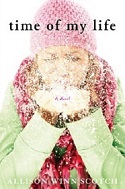


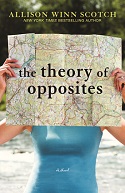
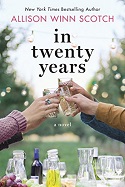
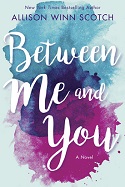
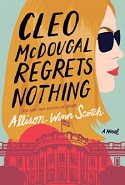
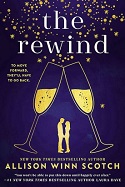

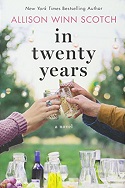


Comments are closed.